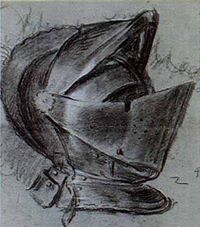Socrates was sentenced to death by the forced ingestion of what type of plant?
In 399 BCE Socrates was charged with impiety by Meletus the poet, Anytus the tanner, and Lycon the orator who sought the death penalty in the case. The accusation read: “Socrates is guilty, firstly, of denying the gods recognized by the state and introducing new divinities, and, secondly, of corrupting the young.” It has been suggested that this charge was both personally and politically motivated. It has also been suggested, based in part on interpretations of Plato's dialogue of the Meno, that Anytus blamed Socrates for corrupting his son. Anytus, it seems, had been grooming his son for a life in politics until the boy became interested in Socrates' teachings and abandoned political pursuits. As Socrates' accusers had Critias as an example of how the philosopher corrupted youth, even if they never used that evidence in court, the precedent appears to have been known to the jury.
Socrates was convicted and sentenced to death (Xenophon tells us that he wished for such an outcome and Plato's account of the trial in his Apology would seem to confirm this). The last days of Socrates are chronicled in Plato's Euthyphro, Apology, Crito and Phaedo, the last dialogue depicting the day of his death (by drinking hemlock) surrounded by his friends in his jail cell in Athens and, as Plato puts it, "Such was the end of our friend, a man, I think, who was the wisest and justest, and the best man I have ever known" (Phaedo, 118).
More Info:
www.ancient.eu









